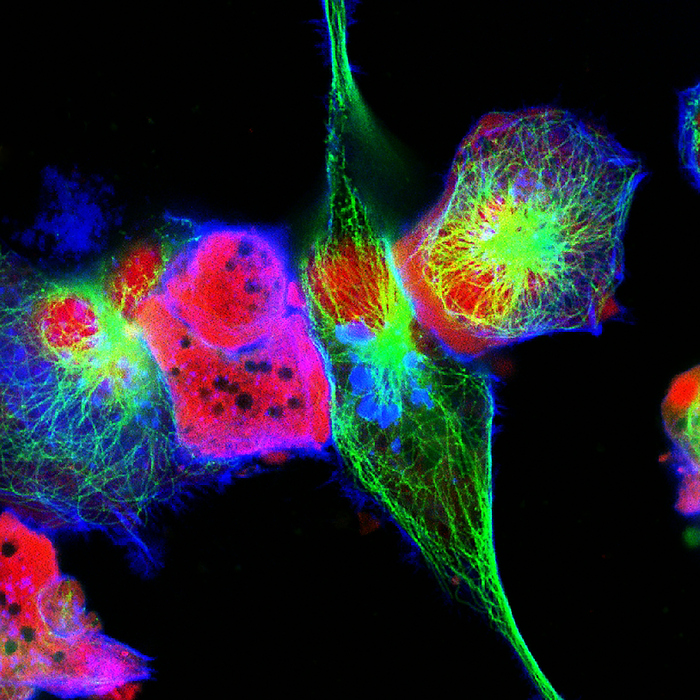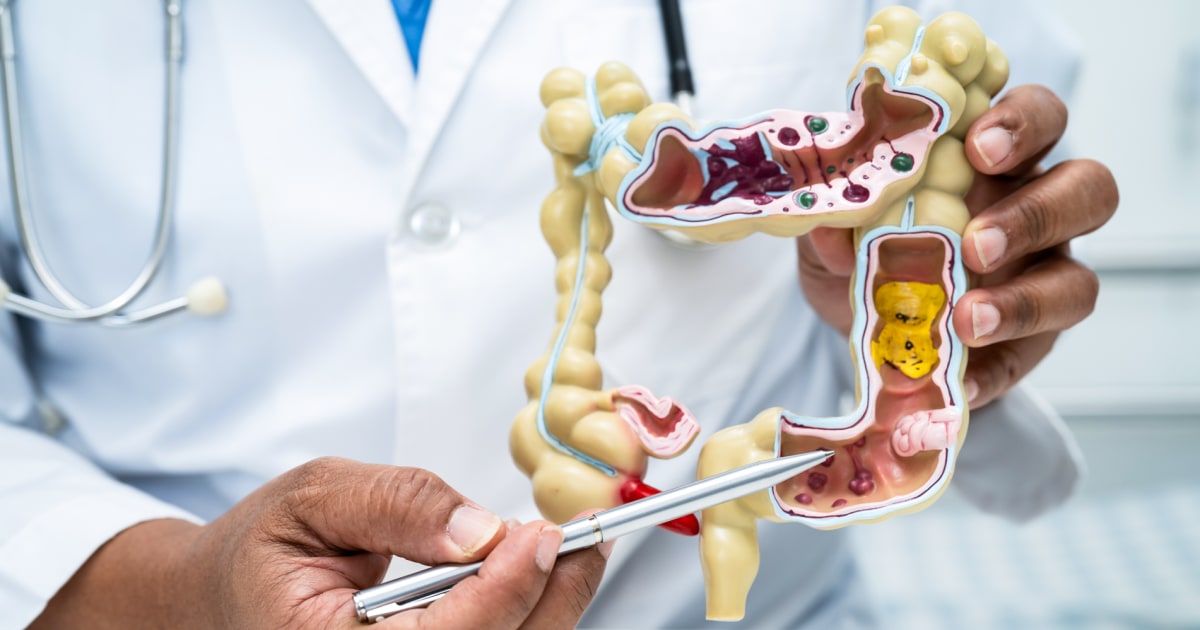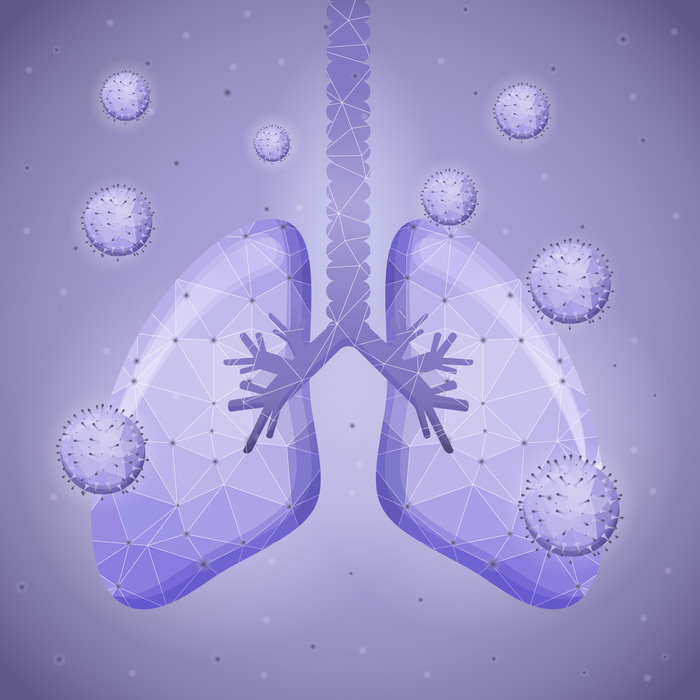There is an ecosystem of millions of microbes, such as bacteria, viruses, fungi or archaea, that populate the human gut and play a key role in health. All of them, their genetic material, the substances they secrete and the relationships they establish between them, make up the intestinal microbiome, a kind of invisible organ that interacts with the rest of the organism. If everything is in order and harmony, there is health; But when something is deregulated in that microbial universe – due to the use of antibiotics or the rise of a pathogen, for example – problems appear.
The potential of the microbiome to mediate health and disease is still being studied, but therapeutic strategies have already been found that account for its relevance to human well-being: fecal microbiota transplantation, which involves using feces to implant intestinal microbes from a healthy donor into a patient's intestine in order to restore their damaged flora, It is already used in clinical practice. According to a scientific review, it is more effective than antibiotics in treating recurrent infection by Clostridioides difficile bacteria and may have margin in ulcerative colitis. The scientific community continues, however, to refine this technique and look for new indications, such as in the field of mental health or to improve the effect of immunotherapy on cancer.
Read moreWe are half human, half bacteria: what the microbes that populate our bodies can do for us
The idea of using feces — and its microbes — for therapeutic purposes is not new. Already in the fourth century in China, the use of the so-called "yellow soup" was described, a fecal suspension that was used for the treatment of severe food poisoning and diarrhea. Bedouins also consumed camel feces to treat dysentery and, for this same purpose, intestinal bacteria were administered to German soldiers in World War II, during the North African campaign.
In the 1980s it was when it began to be used for the treatment of infection by Clostridioides difficile (C. difficile), explains Jordi Guardiola, head of the Digestive System service at the Bellvitge Hospital in Barcelona and one of the heads of the Unit for the Study of the Microbiome of his center: "It is an infection closely linked to the use of antibiotics. It produces profound dysbiosis [an alteration of microbial balance]. C. difficile is capable of forming spores that live everywhere and last a long time. Surely we have been in contact with them, but nothing happens to healthy adults. When taking antibiotics, however, dysbiosis is favored and the spores germinate and, if there is that imbalance, there is more risk that the toxin produces inflammation, "he says. Dysbiosis leads to the loss of microbial diversity: beneficial microorganisms disappear in favor of the expansion of other harmful potentials.
Guardiola stresses the paradox of using antibiotics to treat an infection that is stoked, precisely, with the use of these same drugs: "A disease favored by antibiotics, we treat it with more antibiotics: we kill the bacteria, but we cause more dysbiosis and that is what increases the risk of recurrence," he warns. This highly resistant microbe can cause life-threatening diarrheal symptoms and, after the first infection, 30% of patients treated with antibiotics relapse; After the second episode, the probability of a third is 60%.
In clinical practice, the use of fecal microbiota transplantation is already used for the treatment of this medical condition. Through a colonoscopy, with an enema, oral capsules or nasogastric tube, among other methods, the patient is administered fecal matter containing intestinal microbiota from a healthy donor: the technique helps to restore flora and increase microbial diversity. A study published in the New England Journal of Medicine (NEJM) in 2013 confirmed the resounding success: 93% of patients were cured with the transplant and only 31% did so with an antibiotic. "The study was stopped [early] because the profit was very high," Guardiola recalls.
A culture of 'Clostridioides difficile' in the laboratory of the microbiology service of the Bellvitge Hospital. Albert Garcia
A recent review by Cochrane, the independent network of researchers analyzing scientific evidence, has concluded that fecal transplantation "likely leads to a large increase in resolution of recurrent C. difficile infection compared to alternative antibiotic treatments," such as vancomycin. Rosa del Campo, a microbiologist at the Ramón y Cajal Hospital in Madrid, celebrates the result of the review, although it is nothing new for her. "From the third recurrence, it occurs. And people accept it very well. But our clinicians prefer to consider other options, such as fidaxomicin [another antibiotic], because they think we are taking certain risks," admits the microbiologist.
The melon on the risks of this therapeutic strategy remains open. The scientific review concludes, in this case, that this technique "probably leads to a small decrease in serious side effects", but the authors admit the "concern" about the possibility that, in the transplant, pathogens that cause unwanted effects can be introduced: "Serious events have been reported including mortality, shock septic, aspiration pneumonia and toxic megacolon", they reflect. Del Campo assumes the dangers, but there are also controls, he clarifies: "There are risks of [introducing] things that we do not know, but donors are healthy and super-controlled people. In Spain we always have controls to detect antibiotic-resistant bacteria in feces," he exemplifies.
Not everyone is a donor. The profiles are meticulously monitored — "If your cholesterol is high, we rule it out," says Del Campo — and followed for a while to ensure they remain healthy. Zero risk does not exist, but the danger of transmitting infections, for example, does not worry experts too much, says Guardiola: "On the contrary: normalizing a microbiota makes you healthier, prevents you from doing intestinal sepsis. What worries us now is that the predisposition to get sick is transferred. This is more theoretical, but, strictly speaking, if a disease appears in a donor, the recipient must be monitored. We transfer a lot of things that we don't know what they are."
Research around the microbiome continues. Another Cochrane review of its role in inflammatory bowel disease (IBD)—an autoimmune condition affecting the gut, where the immune system mistakenly attacks healthy tissue—yields more mixed results: researchers conclude that "it may increase the proportion of people with active ulcerative colitis [a type of IBD] who manage to control the disease." But they see "uncertain" evidence on the risk of adverse effects or improved quality of life. It is also not clear that it serves for the remission of patients with Crohn's disease (another type of IBD) or to maintain an eventual remission of either of these two conditions.
No results in Crohn's
"There is a clear association between dysbiosis and IBD and this has led to the idea that if you normalize that imbalance, you can reduce the disease. Most randomized studies in ulcerative colitis have been positive, but not all, "reflects Guardiola. Del Campo points out that, for it to work, in colitis "they do not have to be long-term patients": "In those cases the immune system is already so altered, that even if you change the bacteria, that inflammation no longer goes out," he justifies. In Crohn, the experts consulted agree, the situation is more heterogeneous, "there is less data" and it does not quite work.
Outside of intestinal pathology, stool transplantation is also being studied. For example, says Del Campo, in recurrent urinary infections: "It is under study. It is about changing intestinal ecosystems in case uropathogens are hidden there. The alternative is to take low-dose antibiotics every day of the year." Guardiola also points out possibilities "for the prevention of sepsis in multidrug-resistant germs" or for oncology: "There is a clear relationship between dysbiosis and the efficacy of immunotherapy and trials are being done to improve cancer treatment," he says. A small study published in Science showed that, in patients with metastatic melanoma, fecal transplantation was associated with "favorable changes" in immune cells and in gene expression of the tumor environment.
There is also some green shoot in mental health that puts in value the gut-brain axis, that bidirectional connection pathway between both organs. In a patient with bipolar disorder, for example, Australian doctors achieved a reduction in symptoms after the transplant and ruled out a possible placebo effect: "I felt incredible, as if a weight had been lifted off my shoulders. As if he had caught his breath for the first time in years," the patient said after the intervention, whose statements were collected in the study. A scientific review with human and preclinical studies also found "strong evidence" for the treatment and transmission of psychiatric diseases through fecal transplantation. "All studies found a decrease in depressive and anxiety-like symptoms and behaviors as a result of healthy microbiota transplantation. The opposite was also found, with the transmission of depressive and anxiety-type symptoms and behaviors resulting from microbiota transplantation from psychiatrically ill donors to healthy recipients," the authors state.
The scientific community continues to investigate, also with cocktails of bacteria designed in the laboratory and well characterized to control what is administered in the transplant. The US regulatory agency (FDA) approved in November the first prepackaged fecal microbiota biopharmaceutical for Clostridioides difficile. "The real limitation we have is the knowledge, the knowledge base that we lack," Del Campo assumes. Guardiola agrees: "We have a lot to learn. We have always been very cautious about the relationship of dysbiosis and disease: except in Clostridioides, causality is not proven. And finding associations doesn't mean causation."
Many doubts remain to be resolved. An article published in the journal Cell Host & Microbe highlights that even the mechanical understanding of how stool transplantation works in C. difficile is "incomplete" and they do not know why this technique does not work in some patients. For example, they argue, ecological factors, such as diet or genetics of the recipient, have not been considered in previous studies "and may be the missing links of these cases of failed transplants," they postulate.
You can follow EL PAÍS Salud y Bienestar on Facebook, Twitter and Instagram.

/cloudfront-eu-central-1.images.arcpublishing.com/prisa/AHIHJIDJIVB3LL3EFXRMPKNCQU.jpg)

/cloudfront-eu-central-1.images.arcpublishing.com/prisa/PXTLDZ4PUVFJLM6CHYFPYPWVKI.jpg)











